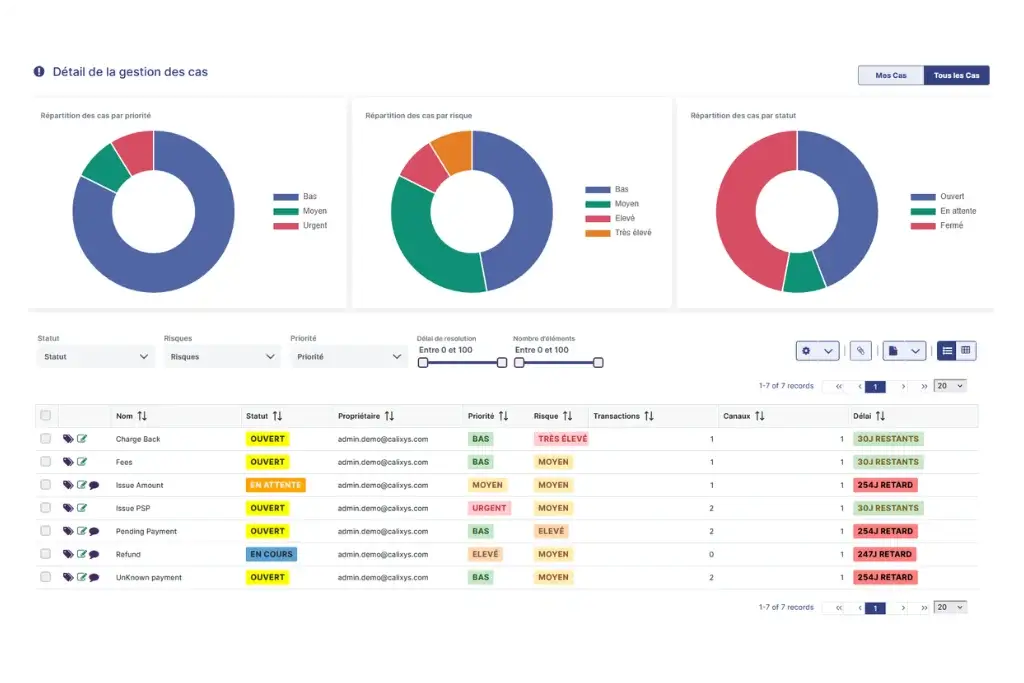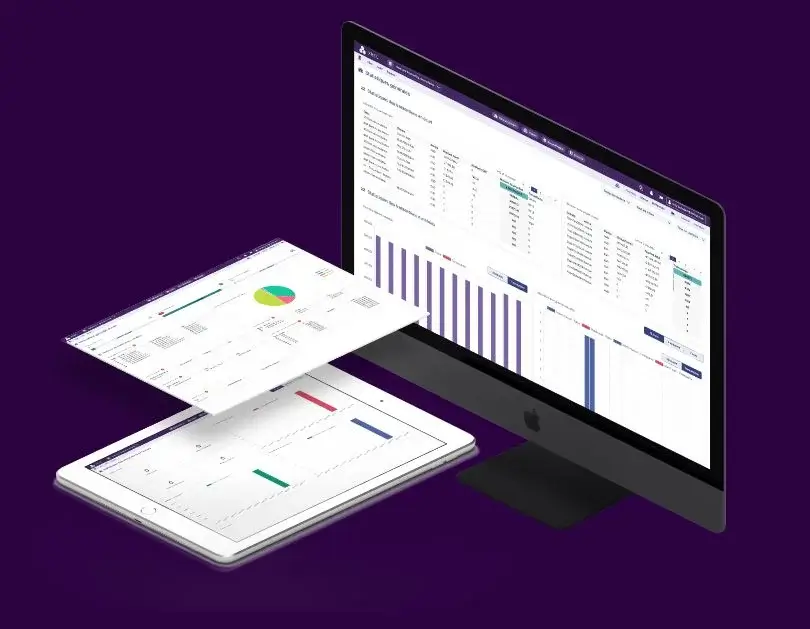Financial Management for Marketplaces: Challenges and Solutions

Publié
Le 10/06/2025, par :
- Anne Marie Diom
Sections
Overcoming Financial Management Challenges for Marketplaces
With the rise of digitalization, e-commerce platforms are proliferating—and increasingly leveraging marketplaces. These platforms, often structured around a three-sided model, are now expanding into B2B just as they have in B2C. With this comes a massive volume of transactions and payments, exposing marketplaces to financial complexity and risk. Moreover, these platforms often face irregular and increasing transaction flows.
So how can financial management for marketplaces be simplified? Are there reconciliation tools designed to meet these challenges?
Existe-t-il un logiciel de réconciliation adapté à leurs exigences ?
Devant ces enjeux bien réels, quelles sont les solutions visant à faciliter la gestion financière pour les marketplaces ?
How Marketplaces Work and Current Trends
A marketplace acts as a digital intermediary, facilitating transactions between buyers and sellers while hosting a wide range of offers. They provide brands with :
- broad exposure,
- year-round promotions,
- secure customer data handling,
- a global product range,
- streamlined logistics,
- access to new suppliers.
Online growth has fueled B2B marketplaces, now frequented by retail players, banks, and insurers. These platforms come in various forms—e-commerce, network-based, circular economy, e-procurement, and more. Their scalable and complex ecosystems often require multi-way reconciliation across diverse systems such as PSPs, front-office, and back-office systems.
By 2024, France’s B2B e-commerce reached €400 billion, driven by marketplaces and AI. Between 2022 and 2024, the compound annual growth rate for marketplaces is projected at 49.7% by 2025. However, rapid growth brings significant financial management challenges.

Key Financial Management Risks for Marketplaces
Volume-related risks
- Sales Fluctuations and Spikes
Marketplaces are prime environments for running promotional offers year-round. Often driven by sellers themselves, these campaigns help boost revenue on a regular basis. But with these frequent sales peaks and high-traffic periods, the flow of financial transactions becomes not only massive but also inconsistent and uneven. That’s why marketplaces need flexible processes and tools that can perform reliably—regardless of volume.
👉 Also worth reading: Financial Challenges After Peak Activity Periods
- Growing Volume
A high volume of transactions requires a steady and well-planned supply chain. In parallel, all these transactions must be properly recorded, accounted for, and reconciled. As volumes grow, manual or unreliable processes often lead to more errors. To keep up with this evolving scale, marketplaces need long-lasting, scalable tools and workflows that won’t become outdated over time.
Multi-stream complexity
- Multi-Currency Reconciliation
As with many online businesses, international expansion brings its own set of challenges. Marketplaces operating outside the Eurozone must be equipped to handle multi-currency conversions. This adds a new layer to their reconciliation process: the standardization of accounting entries. Reconciling payments across different currencies into a single accounting system is far from simple—and requires robust tools that can normalize and align data accurately.
- Exchange-rate Risk
In parallel, multi-currency payments introduce a second level of risk: currency exchange rate fluctuations. Errors can easily occur when reconciliation processes rely on outdated or incorrect rates. To ensure payment reconciliation accuracy, it’s critical to use the correct exchange rates as of the transaction date, minimizing the risk of FX discrepancies and financial mismatches.
- Diversity of Payment Methods
Marketplaces support a wide range of payment flows—whether pay-in or cash-in—processed via credit cards, bank transfers, or recurring debits (e.g., subscriptions). On top of that, newer trends like Buy Now, Pay Later and installment payments further complicate the landscape. This diversity leads to data fragmentation over time and increases the likelihood of reconciliation gaps if not properly handled and matched with precision.
Compliance risk
Regulatory frameworks are constantly evolving, and marketplaces must comply with tax and financial reporting obligations in every region they operate. Since 2021, for example, the EU has mandated fraud detection mechanisms for marketplaces. In terms of VAT, platforms are expected to provide an annual summary of all transactions, including the total VAT collected. They’re also responsible for remitting VAT on behalf of sellers located outside the Eurozone.
Non-compliance exposes marketplaces to substantial risk—including audits, fines, and penalties. This “cost of compliance” can range from an upfront investment to bring systems up to standard, to more significant structural costs if the issues persist over time.
Understanding the wide array of financial risks marketplaces face is the first step in choosing solutions that are not only tailored to their operational model—but also capable of scaling and adapting in a fast-moving regulatory and commercial environment.
Reconciliation Software Designed for Marketplaces
To manage the growing financial risks they face, marketplaces must rely on specialized tools. Calixys solutions are built to offer both flexibility and long-term reliability. “XREC Reconciliation,” our platform for payment matching and financial data synchronization, integrates easily with a marketplace’s financial information system and provides an immediate response to current operational and compliance challenges.
So, what makes it stand out?
At Calixys, we believe that this transformation requires a dedicated solution—designed to handle complexity and deliver accuracy. That’s exactly the mission we pursue with XREC.
Solutions Built for Marketplace-Specific Challenges
Reconciling high volumes of financial data
XREC is based on a scalable architecture that supports growing transaction volumes over time. Its replicable model allows deployment across multiple entities—both in France and internationally—without limitations.
Managing sales peaks
XREC enables end-to-end automated reconciliation, capable of ingesting and processing large volumes of financial data during high-traffic periods, ensuring stability and efficiency even during spikes.
Standardizing diverse payment methods
With a flexible and real-time approach, XREC unifies a wide range of payment types—credit cards, bank transfers, subscriptions, buy now pay later, and more—into a single harmonized process.
Handling currency exchange and multi-currency complexity
Thanks to its data enrichment module, XREC transforms and normalizes currency data, making conversions and reconciliations across different currencies seamless and accurate.
Ensuring compliance with evolving regulations
XREC dramatically reduces the cost of compliance through automation and configurability. Its robust audit trail and historical tracking features facilitate audits and ensure data integrity in line with legal requirements. XREC also strengthens fraud and error detection, enhances risk prevention, and reinforces data security with features like data anonymization, encryption, two-factor authentication, and full auditability of the provider chain.
Minimizing human error
XREC brings greater reliability to financial reporting. By automating manual tasks, it eliminates data entry errors and offers alert systems for discrepancies, resolutions, and validation workflows.
Financial management for marketplaces involves handling high transaction volumes and complex purchasing flows. The exponential growth in sales volume remains one of their greatest operational challenges. To reduce the risks associated with heavy accounting processes, finance teams must rely on high-performing, purpose-built reconciliation software. A dedicated tool that automates, reconciles, and synchronizes financial data is now essential to a healthy financial ecosystem.
Now is the time to take action—with reliable, future-proof solutions :
👉 Discover XREC: trusted for over 10 years, deployed in France and in 144 countries worldwide.



